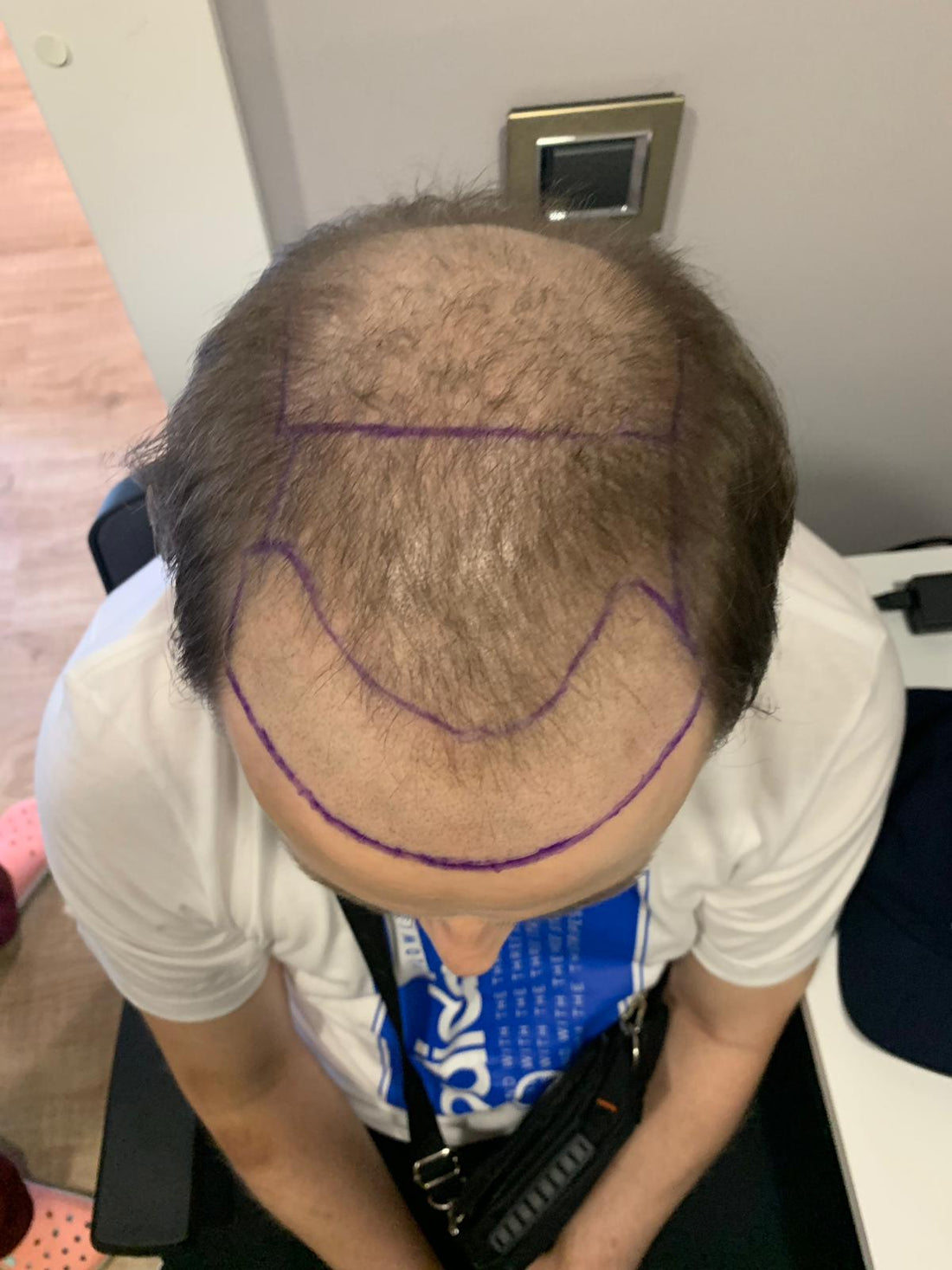
Hair Loss in Men: Causes, Treatments, and Prevention
Share
Hair Loss in Men: Causes, Treatments, and Prevention
Hair loss is a common issue affecting millions of men worldwide. While it can be distressing, understanding the causes, available treatments, and preventive measures can help manage and even reverse the condition. This comprehensive guide explores the key aspects of hair loss in men.
1. Common Causes of Hair Loss in Men
a. Male Pattern Baldness (Androgenetic Alopecia)
- The most common cause of hair loss in men.
- Linked to genetics and hormonal changes.
- Characterized by a receding hairline and thinning on the crown.
b. Stress and Lifestyle Factors
- High levels of stress can lead to temporary hair shedding (telogen effluvium).
- Poor diet, lack of sleep, and smoking can also contribute to hair loss.
c. Medical Conditions
- Alopecia Areata: An autoimmune disorder causing patchy hair loss.
- Thyroid Disorders: Imbalances in thyroid hormones can affect hair growth.
- Scalp Infections: Conditions like ringworm can damage hair follicles.
d. Medications and Treatments
- Hair loss can be a side effect of certain medications, such as chemotherapy drugs, antidepressants, and beta-blockers.
2. Effective Treatments for Hair Loss
a. Medications
- Minoxidil (Rogaine): A topical treatment that promotes hair regrowth.
- Finasteride (Propecia): An oral medication that blocks DHT, a hormone linked to hair loss.
b. Hair Transplant Surgery
- Involves transplanting hair follicles from a donor area to thinning or balding areas.
- Techniques include FUE (Follicular Unit Extraction) and FUT (Follicular Unit Transplantation).
c. Platelet-Rich Plasma (PRP) Therapy
- Uses the patient’s blood plasma, rich in growth factors, to stimulate hair regrowth.
d. Low-Level Laser Therapy (LLLT)
- Non-invasive treatment using light to stimulate hair follicles.
e. Natural Remedies
- Essential oils like rosemary and peppermint may improve scalp health.
- A balanced diet rich in vitamins and minerals supports hair growth.
3. Preventive Measures for Hair Loss
a. Maintain a Healthy Lifestyle
- Eat a balanced diet with adequate protein, iron, and vitamins.
- Exercise regularly to improve blood circulation to the scalp.
b. Reduce Stress
- Practice stress-management techniques like yoga, meditation, or deep breathing exercises.
- Ensure adequate sleep to support overall health.
c. Avoid Harsh Hair Practices
- Minimize the use of heat styling tools and harsh chemical treatments.
- Use gentle, sulfate-free shampoos and conditioners.
d. Protect Your Scalp
- Shield your scalp from excessive sun exposure by wearing a hat or using sunscreen.
- Keep your scalp clean to prevent infections.
4. When to See a Specialist
If hair loss is sudden, severe, or accompanied by other symptoms such as itching or redness, consult a dermatologist or trichologist. Early diagnosis can lead to more effective treatment.
5. Emotional Impact of Hair Loss
Hair loss can affect self-esteem and confidence. Seeking support from friends, family, or support groups can help. Many men also explore options like wigs, hairpieces, or scalp micropigmentation as cosmetic solutions.
Conclusion
Hair loss in men is a multifaceted issue with various causes and treatments. While some factors like genetics are beyond control, adopting a healthy lifestyle and seeking appropriate treatments can significantly improve hair health. Consult a specialist to explore the best options for your individual needs and take proactive steps to regain your confidence.

